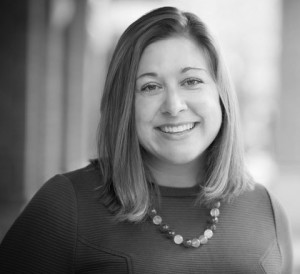Part 1 can be found here.
Being a parent is just plain hard for almost everyone, and our backgrounds directly influence our own ability to parent with confidence and presence. Research shows us that attachment between parent and child is strongest when parents have the capacity to be reflective both about their current emotional states and about their own past. Parents who make the decision to do their own emotional work—taking stock of what their own childhood relationships were like and what kind of effect they had on the adult they’ve become—are more likely to be emotionally aware and present in their relationships with their own children. Here are some ideas about how to build your roadmap for the relationship you want to have with your kids.
 Find a narrative for your own children.
Find a narrative for your own children.
Finding a narrative for your children, of course, means that you have to find a narrative that makes sense of your past for yourself first. What parts of your past, both good and bad, have made you who you are? What unique qualities do you inhabit because of your own life experiences? What qualities do you most want to pass on to your children and how do you think you can go about giving them the opportunities to learn them?
Some parents with challenging backgrounds seek out a therapist to process what happened in their childhoods. Others plunge into reading and journaling to make sense out of the past. Finding your own way to create meaning can help you to move forward in your life. Many parents come to the realization that their own parents did the best they could with the resources they had at the time. Our feelings about our childhoods are not stagnant, they do indeed change over time, but the point is that these feelings need to be sorted through and processed in order for us to be free to create positive relationships with our own children.
Recent research has shown that children who know about their own family histories are more resilient in the face of their own life challenges. The most beneficial family narrative is called an oscillating narrative, wherein children are told that their families have had hard times and have had good times but have managed to get through challenges together. The children who are told this narrative report a higher sense of control over their own lives, a higher sense of family connection and higher self-esteem.
The story you have to tell your child about your family history may not be all positive. But if you can find some points of pride to connect your child with the story, it doesn’t have to be all rosy. There is much to be proud of in how we deal with the challenges that life throws our way. It can be powerful to show your child the ways that we build resilience and grit in this life.
Imagine your future.
This is where some long-range thinking comes into play. Imagine your child as a young adult talking to a new friend about his family of origin. How would you like him to think about his own childhood? What words and values would you hope that he would use to describe the home life you created for him?
Some families even create a manifesto or motto for their family. With older kids, this can be a fun family activity. Ask your children to brainstorm the words and phrases and feelings that best represent your family. You can then craft this into a phrase or paragraph that really epitomizes your family’s “best self.” The point isn’t that we always live up to that way of being but that we are actively trying and reaching for this point of inspiration.
No matter where your own journey started, you have the capacity to parent wholeheartedly, providing your children with the loving limits they so desperately need. I wish you luck on developing your own roadmap and on all the adventures that lie ahead for you as a parent!
Want to put some of these ideas into practice. Check out Erin’s Listening Mothers class series.
 By Erin Bernau
By Erin Bernau
Erin B. Bernau, MSW, LICSW works as a parent coach with GROW Parenting and as a parent educator at Seattle Central College’s Parent/Child Center. She has lived in California and on the East Coast, but loves raising her own family in Seattle.



